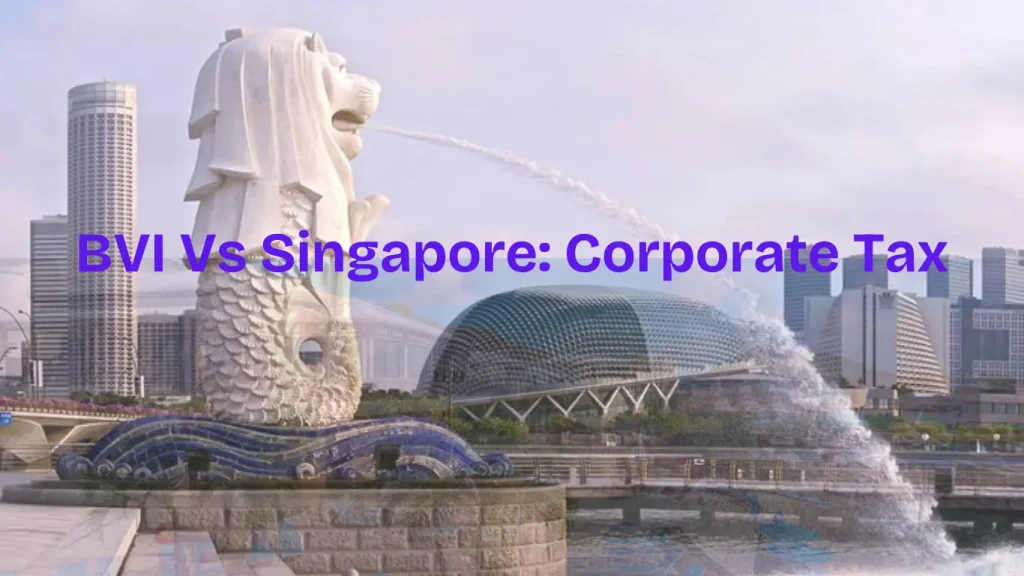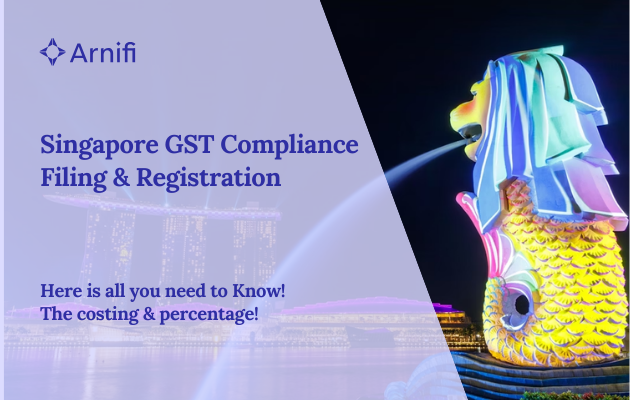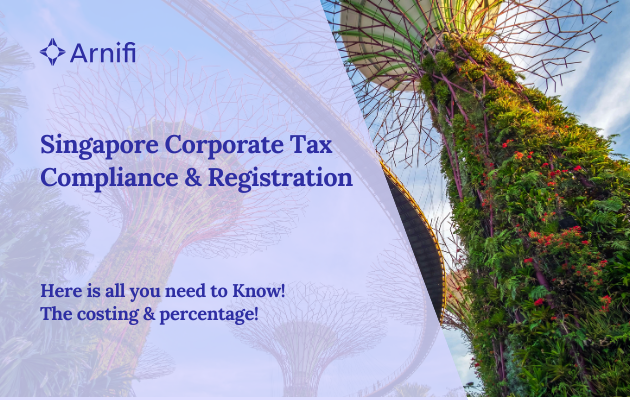Corporate Tax – British Virgin Island & Singapore
by Shethana Jan 31, 2025  5 MIN READ
5 MIN READ

Overview
Are you concerned about paying corporate tax in BVI & Singapore? Well here is the good news there is no corporate tax in BVI but there is a 17% tax in Singapore. CT is a direct tax applied to the net income or profit of corporations and other entities from their business activities. It is also known as “Corporate Income Tax (CIT)” or “Business Profits Tax” in some regions. In this article, you’ll get a detailed view of how corporate tax and other relevant tax works in both BVI & Singapore.
Corporate Tax in the British Virgin Islands (BVI)
1. No Corporate Income Tax
One of the most attractive features of the BVI is its zero-tax policy. Businesses incorporated in the BVI are not required to pay any corporate tax, capital gains tax, inheritance tax, or sales tax. This makes BVI an ideal location for offshore companies seeking tax neutrality.
2. Tax Benefits for Offshore Companies
BVI’s tax-free environment is particularly beneficial for international businesses that operate outside the jurisdiction. Since there are no corporate taxes, companies can maximize profits and reinvest without worrying about tax deductions. However, local businesses serving residents of BVI may be subject to other forms of taxation, such as payroll tax.
3. Compliance and Reporting Requirements
While BVI offers a tax-free regime, companies must still comply with economic substance requirements (ESR). Depending on the nature of their business activities, some companies must demonstrate substantial presence, such as having physical offices and local employees, to comply with global anti-tax avoidance regulations.
To help with global business expansion
make sure you choose us.
Get in touch with our team to find out about our approach
Response within 24 Hours
Great, please give us a brief detail about your business.
Corporate Tax in Singapore
1. Progressive Tax System
Unlike BVI, Singapore imposes a corporate income tax of 17% on chargeable income. However, the country provides multiple tax incentives and exemptions, making it highly attractive for businesses.
2. Tax Incentives and Exemptions
Singapore offers several corporate tax benefits, such as:
- Start-up Tax Exemption (SUTE): Startups enjoy a 75% tax exemption on the first SGD 100,000 of chargeable income for the first three years.
- Partial Tax Exemption: All companies get a 75% exemption on the first SGD 10,000 and 50% on the next SGD 190,000 of chargeable income.
- Industry-Specific Tax Incentives: Businesses in technology, finance, and R&D can benefit from special tax schemes to reduce their effective tax burden.
3. Goods and Services Tax (GST)
Singapore has a 9% GST (as of 2024), which applies to goods and services sold domestically. Unlike BVI, where there is no sales tax, businesses operating in Singapore must comply with GST regulations if their taxable revenue exceeds SGD 1 million annually.
4. Double Taxation Agreements (DTAs)
Singapore has an extensive network of over 90 Double Taxation Agreements (DTAs), allowing businesses to avoid being taxed twice on the same income in different countries. This makes it easier for companies with international operations to manage their tax liabilities effectively.
| Feature | British Virgin Islands | Singapore |
| Corporate Tax | 0% Corporate Tax | 17% (with exemptions) |
| Tax Incentives | No corporate taxes needed | Multiple exemptions and incentives |
| Economic Substance Requirements | Required for certain businesses | No strict substance rules for most firms. |
| Sales Tax (GST/VAT) | No GST or VAT | 9% GST |
| DTA Network | Limited DTAs | Extensive DTA network |
To help with global business expansion
make sure you choose us.
Get in touch with our team to find out about our approach
Response within 24 Hours
Great, please give us a brief detail about your business.
Key Takeaways
BVI is an ideal jurisdiction for businesses seeking a tax-free environment with minimal compliance requirements, making it attractive for offshore entities. However, Singapore, with its low tax rate, tax incentives, and strong DTA network, is a better option for businesses that require a reputable and globally recognized jurisdiction. Choosing between BVI and Singapore depends on your business goals—whether you prioritize tax neutrality or global trade benefits. Understanding each jurisdiction’s tax policies will help you make the right decision for long-term success. Reach out to Arnifi to get a better understanding.
Also Read – Double Taxation Agreement Between UAE & Singapore
Top UAE Packages

Related Articles
Top UAE Packages



